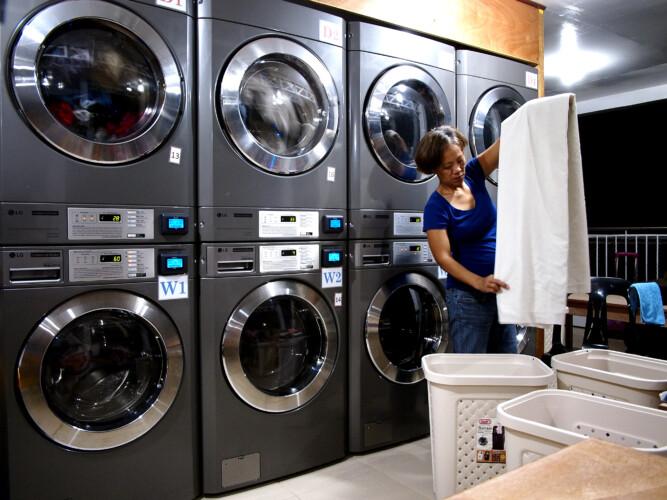Introduction
Starting a laundry business in Kenya involves establishing a service that cleans and launders clothing and textiles for customers. You provide essential services that meet the needs of individuals and businesses who prefer convenience and professional care for their garments.
Kenya, located in East Africa, offers you a dynamic market with a growing urban population and increasing demand for laundry services. You can capitalize on Kenya’s vibrant economy and expanding middle class, which drives the need for efficient and high-quality laundry solutions.
Understanding the local market and consumer preferences is crucial as you embark on this entrepreneurial journey. By addressing these needs, you position yourself to thrive in Kenya’s evolving business landscape.
1. Conduct Market Research
You need to conduct market research as it is crucial when starting a laundry business in Kenya. You begin by analyzing the demand for laundry services in various regions. Identify your target market, such as residential areas, businesses, or hotels.
Assess the competition by visiting existing laundry businesses and evaluating their services and pricing. You gather data on customer preferences, including service quality and pricing. Then, you explore the economic conditions and population demographics in Kenya to understand market trends.
Use surveys or focus groups to gain insights into customer needs and expectations. You should also evaluate the feasibility of your business concept based on your findings.
Ensure your market research provides a clear understanding of opportunities and challenges. You can make informed decisions about location, service offerings, and pricing strategies based on this research.
2. Develop a Business Plan
Developing a business plan is essential for starting a laundry business in Kenya. You start by outlining your business goals and objectives. Describe the services you will offer and your unique selling points.
You should include a detailed market analysis based on your previous research, specifying your target customers and competition. Make sure you project your financials, including startup costs, operating expenses, and expected revenue.
Create a marketing strategy to attract and retain customers. You also outline your operational plan, including staffing, equipment, and facility requirements. Then, you establish a timeline for launching your business.
Make sure your plan includes risk management strategies to address potential challenges. Use this plan to guide your business decisions and secure funding if needed. You can refine the plan as you gather more information and prepare for the launch.
3. Choose a Location
The next pivotal step in starting a laundry business in Kenya is to choose a location. You must select a site that offers high visibility and accessibility to your target market. Consider areas with high foot traffic, such as shopping centers or residential neighborhoods.
Evaluate the space requirements for your laundry operations, ensuring it accommodates necessary equipment and workflow. You should check the availability of utilities, including water and electricity, which are crucial for laundry services.
Assess the rental costs and lease terms to ensure it aligns with your budget. You need to investigate local zoning regulations to confirm your business complies with legal requirements. Don’t forget to analyze the proximity to competitors to gauge the market saturation.
The location you choose should support easy transportation and delivery for customer convenience. Lastly, select a site that best supports your business objectives and growth potential.
4. Register Your Business
Registering your laundry business in Kenya involves several crucial steps. Begin by selecting a unique business name and ensure it is available by checking with the Business Registration Service (BRS).
Obtain a certificate of incorporation from the Kenya Companies Registry if you are forming a limited company. Securing a Personal Identification Number (PIN) from the Kenya Revenue Authority (KRA) is necessary for tax purposes.
Apply for a business permit from the local county government, adhering to regional regulations. You must register for value-added tax (VAT) if your annual turnover exceeds the specified threshold.
Additionally, acquire any required licenses specific to laundry operations, such as health and safety permits. Maintain organized and up-to-date registration documents to comply with Kenyan legal requirements and ensure smooth business operations.
5. Purchase Equipment and Supplies
Another vital step to starting a laundry business in Kenya is to purchase equipment and supplies. You begin by identifying the essential laundry machines, such as washing machines, dryers, and ironing equipment, tailored to local needs.
You select high-quality, energy-efficient equipment that suits the scale of your operation and the local power supply. Research local suppliers or import equipment if necessary, ensuring you meet Kenyan standards and regulations.
You need to buy laundry detergents, fabric softeners, and other cleaning agents suitable for Kenyan water quality. Invest in storage solutions for your supplies to maintain an organized workspace.
Ensure that your equipment and supplies are compatible with local conditions and customer preferences. Regular maintenance plans for your machinery are crucial to avoid downtime. You also need to consider safety equipment and uniforms for your staff.
6. Hire and Train Staff
Hiring and training staff is essential when starting a laundry business in Kenya. You start by recruiting individuals who have experience or a strong interest in laundry services.
Advertise job openings through local employment agencies or community centers to reach potential candidates. Evaluate applicants based on their skills, reliability, and understanding of local laundry needs.
You should provide comprehensive training on laundry procedures, including machine operation and stain removal techniques specific to Kenyan fabrics and detergents.
Emphasize the importance of customer service, as positive interactions are crucial in Kenya’s competitive market. Implement health and safety training to ensure compliance with Kenyan regulations and maintain a safe working environment.
You need to create clear job descriptions and responsibilities to avoid misunderstandings. Regularly review and update training programs to keep staff informed about new techniques and products.
7. Set Pricing and Services
Don’t forget to set pricing and services because it is a critical step for your laundry business in Kenya. Begin by analyzing local market rates to understand the competitive landscape. You should consider factors such as the cost of living in your area and average income levels.
Establish a pricing structure that balances affordability for your customers and profitability for your business. Offer a range of services tailored to local needs, such as wash-and-fold, dry cleaning, and ironing.
Introduce specialized services, like handling delicate fabrics or traditional Kenyan attire, to differentiate your business. You might offer subscription packages or discounts for regular customers to build loyalty.
Ensure transparency in your pricing by clearly listing all costs to avoid misunderstandings. Regularly review and adjust prices based on operational costs and market changes. Focus on delivering high-quality services to justify your pricing and attract a loyal customer base.
8. Market Your Business Locally
Marketing your laundry business in Kenya requires targeted strategies. Start by leveraging social media platforms popular in Kenya, such as Facebook and Instagram, to reach a broad audience.
You should create engaging content showcasing your services and customer testimonials. Distribute flyers and brochures in high-traffic areas like shopping centers, universities, and residential neighborhoods. Collaborate with local businesses and hotels to offer special deals or partnership discounts.
Consider running radio ads on popular local stations to increase visibility. Engage with community organizations and participate in local events to build your presence. Offer introductory discounts or loyalty programs to attract new customers and retain existing ones.
Utilize SMS marketing to send promotions directly to potential customers’ mobile phones, a highly effective method in Kenya. Track the success of your marketing efforts and adjust strategies based on customer feedback and response rates.
Recap
To start a laundry business in Kenya, you need to conduct market research, develop a business plan, choose a location, register your business, purchase equipment, hire and train staff, set pricing and services, and market your business locally. Ensure that every step aligns with local needs and regulations for a successful venture.


















